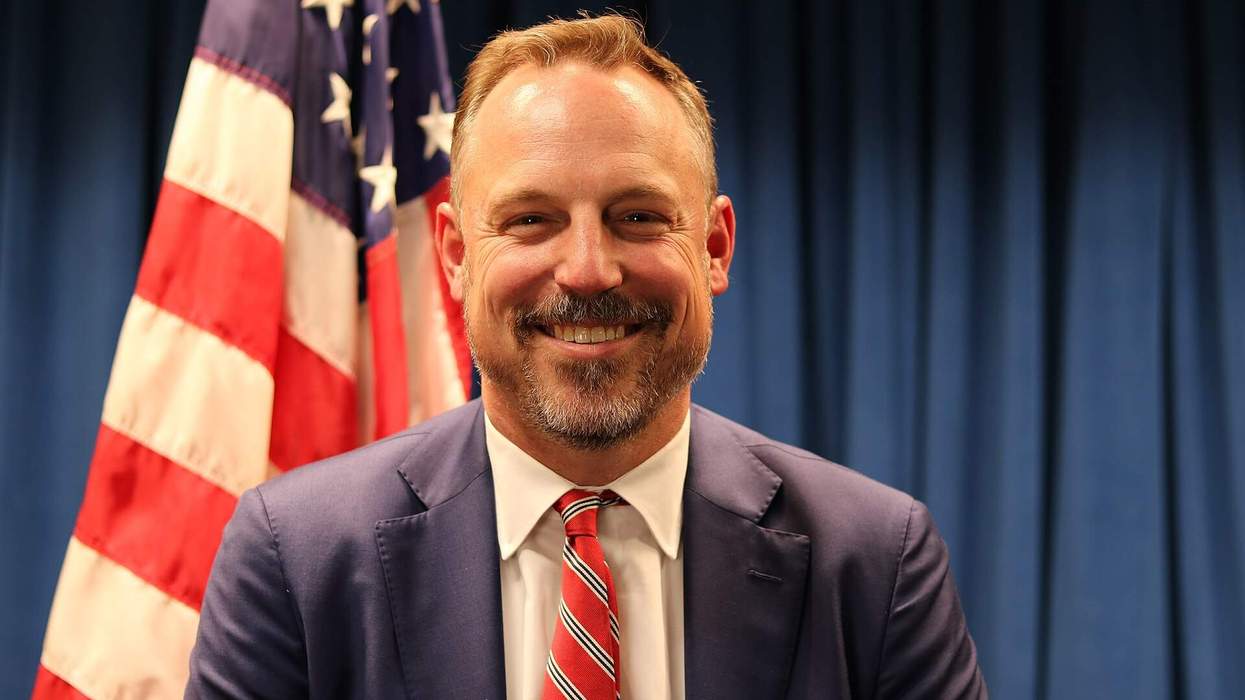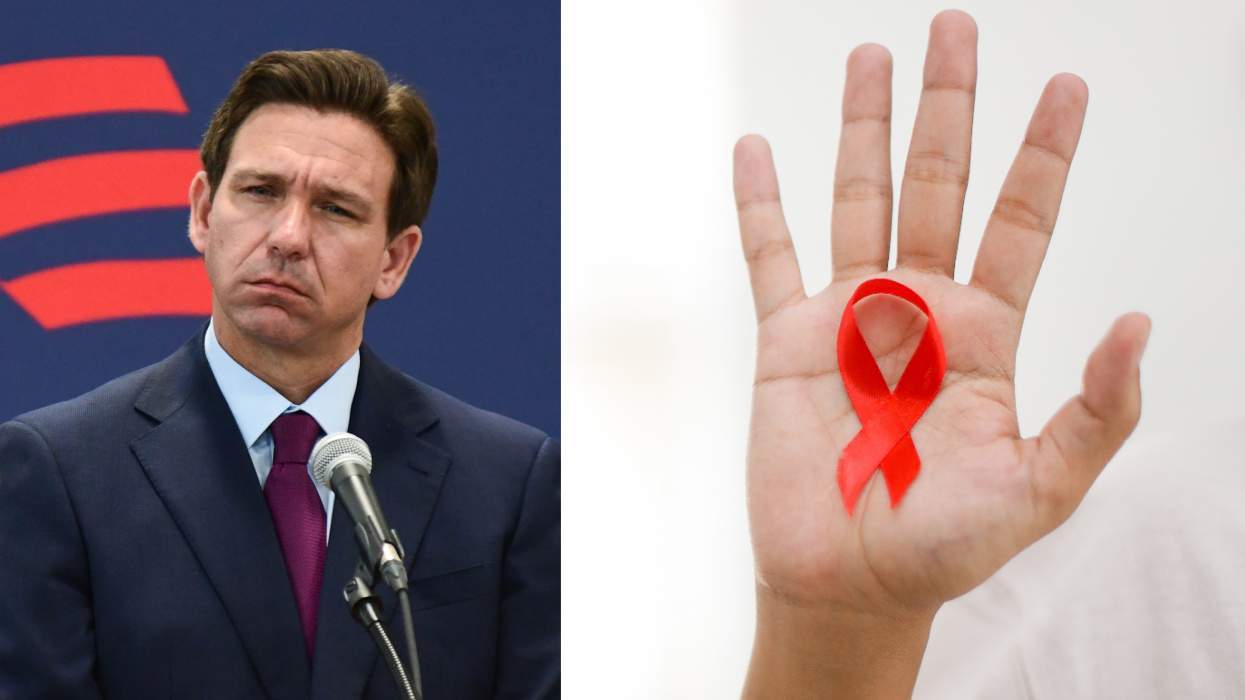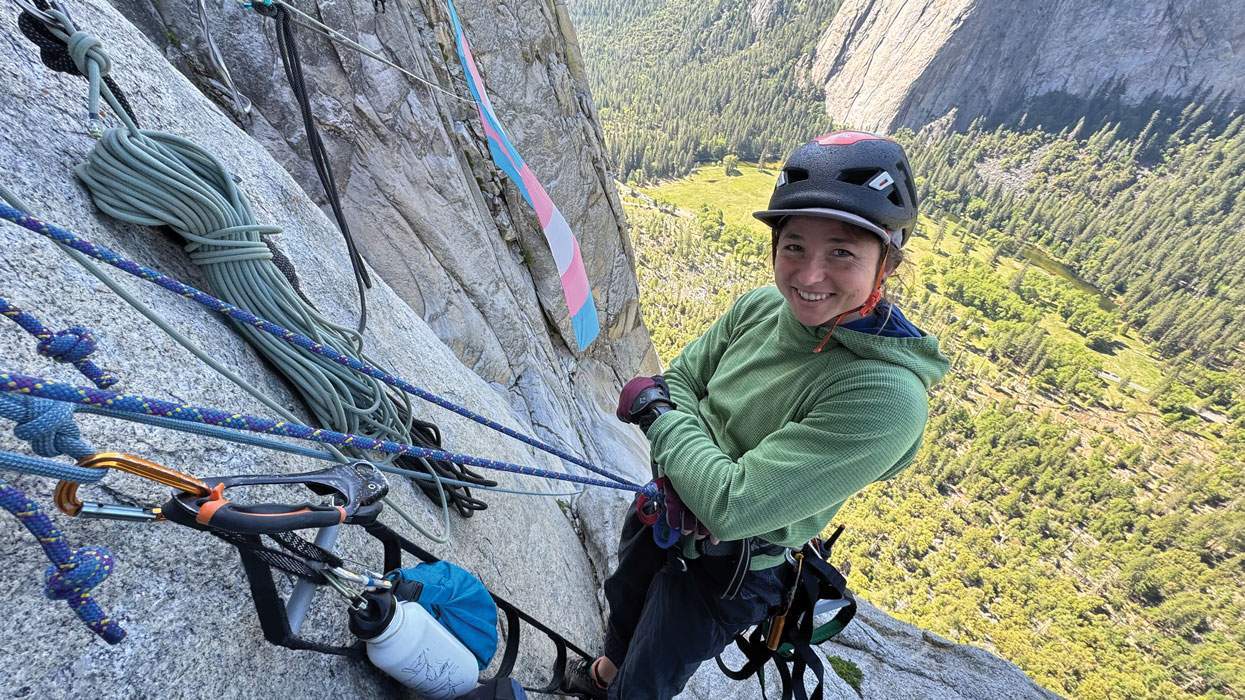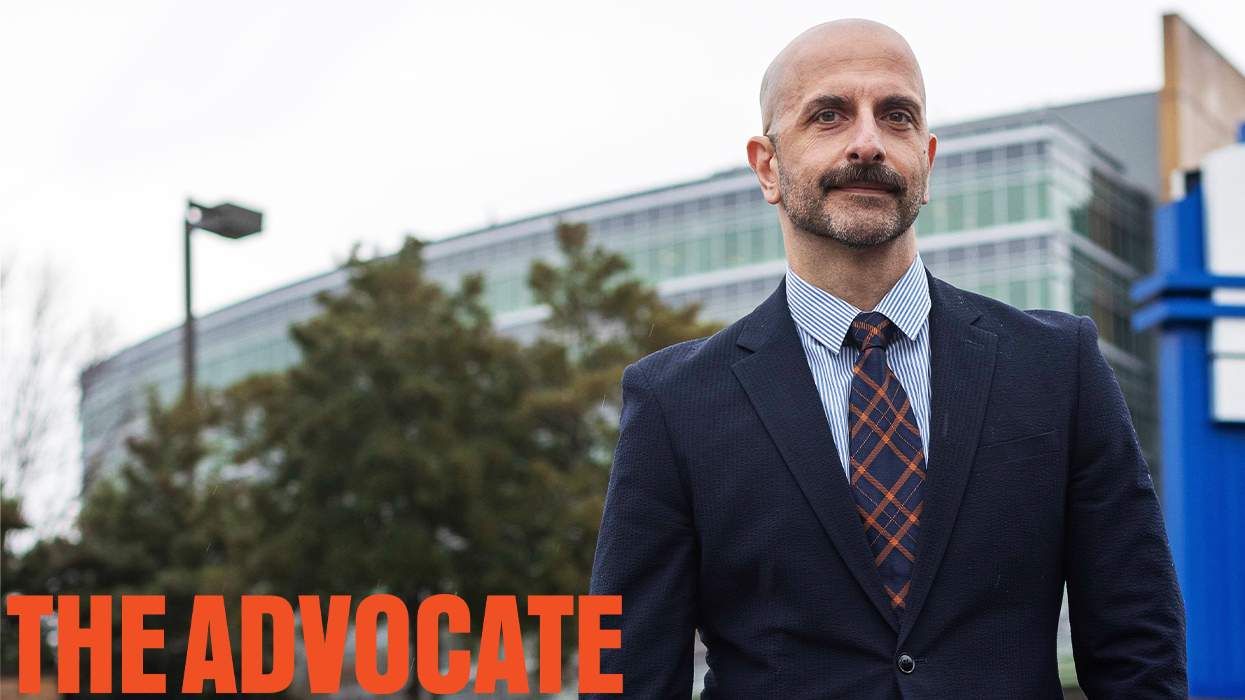TV audiences know Natalie Morales from indelible roles in beloved series like Parks and Recreation and Dead to Me; in the latter, she played the charming love interest to Linda Cardellini's leading character. In 2019, she made history as a Latinx queer actor playing a lead bisexual role on a network sitcom in the sweet but short-lived Abby's. In 2021, with a handful of short films and a couple of episodes of Room 104 to her name, she directed two very different and impactful feature films that explore the value of platonic love, queer identity, connection, and the timely subject of reproductive freedom.
Language Lessons, a two-hander in which she costars with Mark Duplass, captures the earliest days of lockdown and will hold up as a time capsule of that strange era. Employing videoconferencing techniques that proliferated in the first months of COVID, Morales plays Carino, who's hired to teach Spanish to Duplass's grieving Adam. Shot during a time of such uncertainty, the film was inspired, in part, by the death of the great director Lynn Shelton, who was also bisexual.
"We came up with the story and the characters and what would happen, and we shot it and figured out a way to do it in lockdown, which we didn't know [how to do]," Morales says. "We kind of made it up as we went along."
In May of 2021, Hulu released the other film she directed, the best-friend road trip comedy Plan B, a film that somewhat mirrors Morales's experience and is all-around close to her heart. It centers a queer Latinx teen from a religious home, Lupe (Victoria Moroles), and Sunny (Kuhoo Verma), a straitlaced high-schooler of Indian heritage who impulsively acts on her sexual desire at a party and ends up in search of the morning-after pill in their home state of South Dakota, where the laws regulating reproductive choices remain draconian.
"I crave so much visibility, not only in general in the world, but with the Latinx community and also so much for children of religious parents and children from religious homes," Morales says. "Which is such a big deal, and it was how I grew up and how my very best friends who are queer [grew up]."
"It's a difficult subject, especially in the Latin community or in any community [where] religion is a stronghold of their culture. It's very common for that not to be accepted," she says. "There's so much about Lupe's storyline that cuts right to my heart. Even in the scenes where she gets to have a kiss [with a woman], and she gets to take those risks, they mean so much to me, the music swelling. It's not something I ever saw."
Plan B arrived just ahead of a heated national conversation about reproductive freedom in the wake of Texas passing Senate Bill 8, which effectively prohibited abortion unless a person recognizes they're pregnant very early on and knows exactly how they want to handle it (as of press time, it was being challenged in federal court). The conversation about contraception and reproductive freedom is vital amid so much misinformation and a lack of education, Morales says.
"As far as access to contraception and, more importantly, maybe sex ed in the United States and how poor it is -- I have found throughout this process of promoting this movie that what I feared is true. And what I made a concerted effort to make clear in the movie is that a lot of people mistakenly believe that the Plan B is an abortion pill, when it's not," Morales says. "It's like contraception and emergency contraception, right? That is how bad our education is around sex. And these are adults [with misinformation]."
Plan B covers a vast amount of ground, and not just because Lupe and Sunny set out on the road in the sparse expanse of South Dakota. It was Morales's goal to be a conduit for important stories wrapped in a fun and hilarious package that's full of heart.
"If you're not getting that education elsewhere, fine, get it from my movie. I think that there is so much power in just showing the way things are instead of preaching to somebody or trying to shoehorn something in," Morales says. "It's all you have to do to learn about people who are not like you or a situation that you're not familiar with, is just see. See it very plainly. That was my intention."
This story is part of The Advocate's 2021 People of the Year issue, which is out on newsstands November 23, 2021. To get your own copy directly, support queer media and subscribe -- or download yours for Amazon, Kindle, Nook, or Apple News.
















Charlie Kirk DID say stoning gay people was the 'perfect law' — and these other heinous quotes
These are some of his worst comments about LGBTQ+ people made by Charlie Kirk.